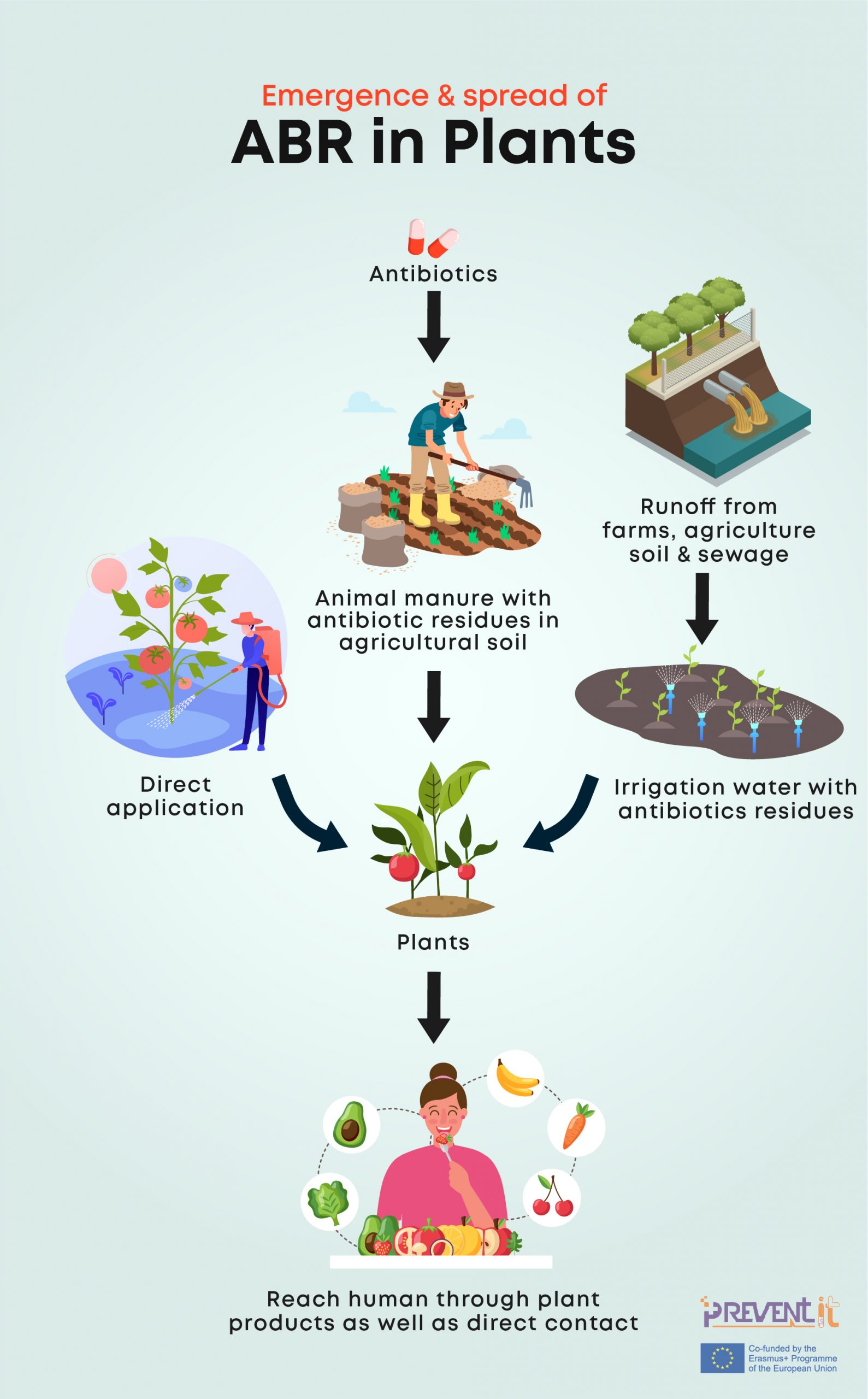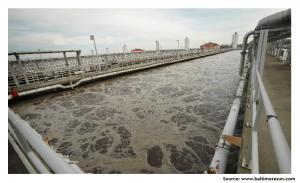Daily intake of fruits and vegetables is necessary to fulfil the daily requirements of vitamins and minerals for human body. But, consuming them raw exposes us to many bacteria including the resistant ones. Different genera of drug resistant bacteria were identified from raw vegetables and fruits, the most common being E. coli. This was followed by Klebsiella species and Salmonella species. A study from India detected Klebsiella species on onion, cucumber, tomato, chili pepper and ginger. Lettuce was commonly contaminated with Salmonella species, followed by coriander, spinach, parsley, and sprouts. In addition to antibiotic resistant bacteria, antibiotic resistant genes were also identified in the fresh produce.
The most common pathway of the contamination of fresh produce by antibiotic resistant bacteria is during pre-harvest and post-harvest periods. Sources of contamination during the pre-harvest period includes agricultural soil, irrigation water, wastewater release from nearby industries, slaughterhouses etc, municipal wastewater, runoff from cattle farms, or animal manure. Sources of contamination during post-harvest period are improper handling of the food and vegetables during cutting, washing, or sanitizing, transporting, packaging or storing and poor hygiene and sanitation practices of food handlers.
Consuming the raw vegetables and fruits is a potential source of foodborne illnesses. It also allows the drug resistant bacteria to survive in the raw food, and thereby reach the human gut. Once the resistant bacteria colonise in the gut, it is a risk for infants, elderly and immunocompromised individuals. There is also a risk of horizontal transfer of antibiotic resistant gene from the resistant bacteria to other bacteria in the gut.
The public health risks associated with exposure to antibiotic resistant bacteria includes risk of difficult to treat diseases, asymptomatic carriage, and transfer to environment. There is increased risk of diarrhoeal diseases as well. Presence of colistin resistance gene is a very serious concern because colistin is the last resort to treat multidrug resistant bacteria.
To learn more, please visit the website of International Journal of Environmental Research and Public Health (Link).







